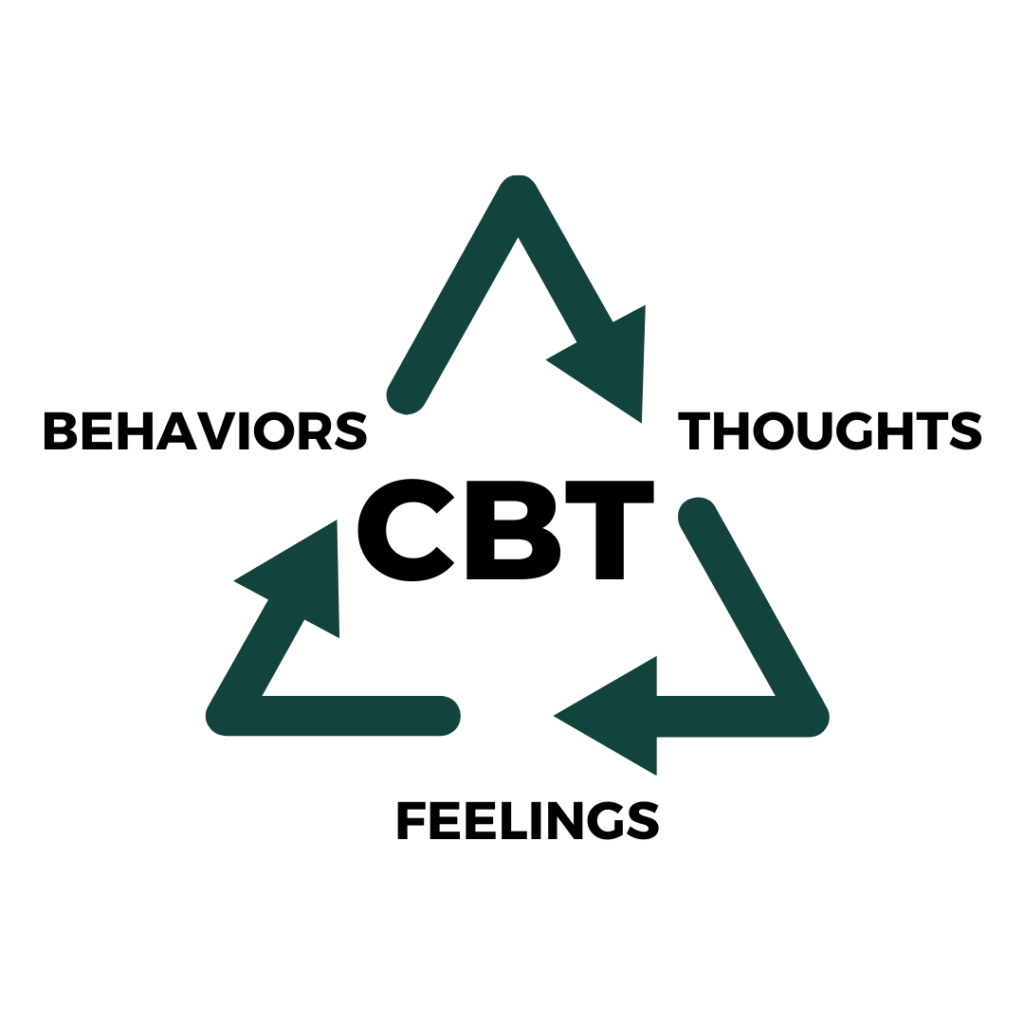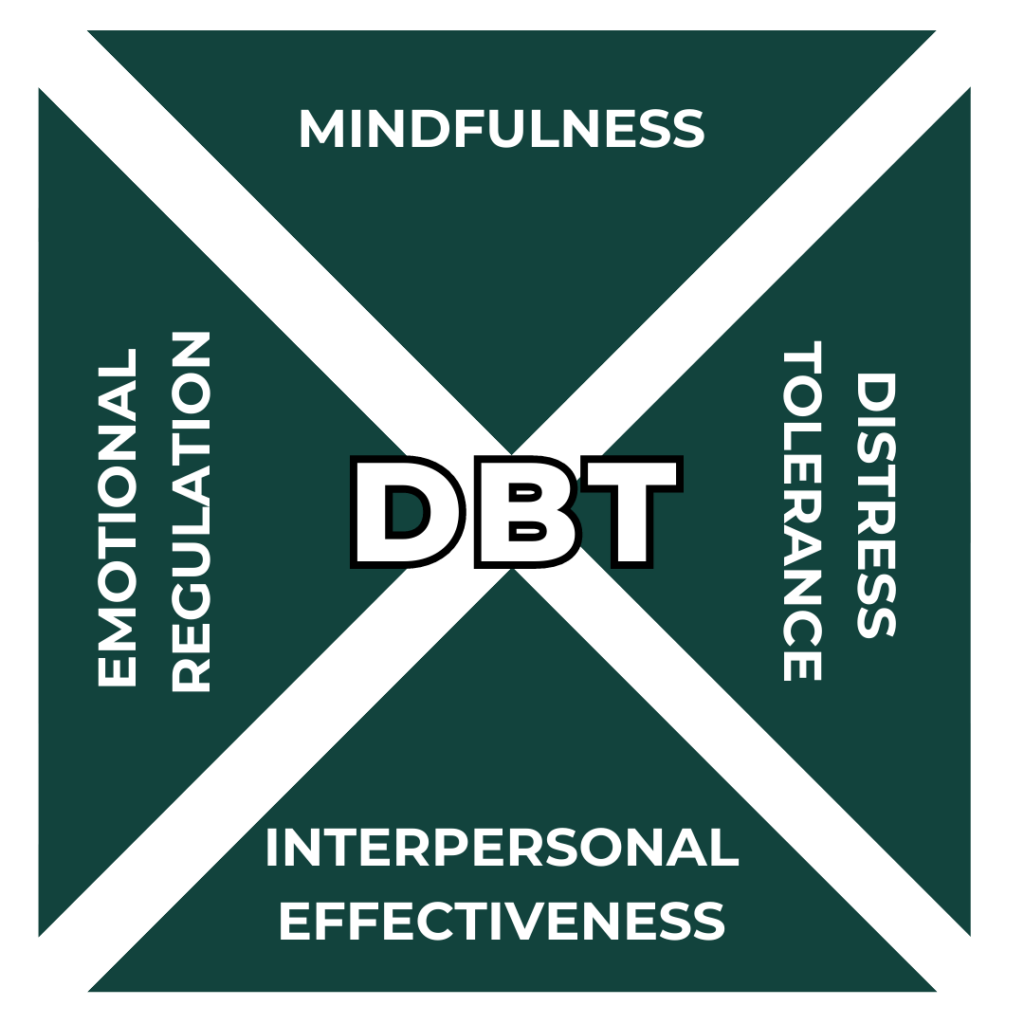Today, addiction treatment utilizes several different techniques to promote mental healing in addition to physical healing, such as cognitive behavioral therapy (CBT) and dialectical behavior therapy (DBT). However, not many people understand the difference between them. For this reason, here is an overview of DBT vs CBT.
What Are The Most Common Types Of Behavioral Therapy?
Behavioral therapy is an all-encompassing term referring to therapeutic techniques focusing on behavioral and cognitive functions. That is to say, a person in behavioral therapy identifies, analyzes, and changes patterns of behavior to improve their quality of life. Naturally, behavior therapy is the perfect addition to an addiction treatment program.
The most common types of behavioral therapy include:
- Cognitive behavioral therapy (CBT)
- Dialectical behavior therapy (DBT)
While undergoing treatment for addiction, guests partake in individual and group therapies that utilize techniques from CBT and DBT. Both cognitive and dialectical behavioral therapy teaches guests to pinpoint the negative behaviors that led to addiction and continue to lead them astray in recovery. In fact, these therapies can help guests to discover the influences behind their poor habits, deconstruct unhealthy behaviors, and implement healthy habits.
How Does Cognitive Behavioral Therapy Work?
Cognitive behavioral therapy (CBT), also called talk therapy, focuses on talking through your issues. As you begin CBT, your therapist will help you understand the cause-and-effect relationship between unhealthy thought patterns and the negative impact on your life. In doing so, you will gain a better understanding of the connection between thoughts, feelings, and behaviors.
As you discuss your current situation, past experiences, and unwanted behaviors, CBT therapists work to help you reframe your mindset. The goal of this therapy is to help you replace your negative thoughts with more positive and realistic ones, allowing you to cope better with difficult situations and emotions.

Important factors in CBT include:
- Quality therapist-patient relationship
- Builds cognitive control
- Instills rational thinking patterns
- Provides structure and clarity
- Encourages self-evaluation
- Build goal-setting and problem-solving skills
- Lowers emotional reactivity
During CBT sessions, your therapist will help you to become more aware of your emotional reactions. You will also learn to see how your emotions are influenced by thoughts, feelings, and behaviors. This knowledge can help you make meaningful changes that will lead to a fulfilling life.
By shifting your perspective and developing new strategies to respond to challenges, CBT can help reduce stress, anxiety, depression, and other mental health issues. In fact, CBT is known for offering quick and lasting results. Many times, just a few months of treatment can lead to long-term improvements in a person’s mental health and well-being.
Additionally, cognitive behavioral therapy teaches guests to use logic and reason to give them back control of their thoughts instead of fixating on past mistakes. Likewise, CBT instills a mindset based on rational, logic-based reflection, lessening the impact of violent, irrational emotional reactions. As you learn to challenge and change your negative thoughts and feelings, you begin to see a decrease in your unwanted behaviors.
What Is DBT?

DBT, or dialectical behavioral therapy, is actually a modified form of cognitive behavioral therapy. Created to treat borderline personality disorder and suicidal people, dialectical behavioral therapy has become a default therapy in drug and alcohol addiction treatment.
The four types of DBT skills include:
- Mindfulness skills
- Distress tolerance skills
- Emotion regulation skills
- Interpersonal effectiveness skills
DBT therapists work with guests to rebuild their confidence through acceptance and validation. Then, therapists will kindly remind guests that, while their actions are valid and understandable, the behaviors remain unhealthy. After, the dialectical behavioral therapist will provide healthy alternatives to destructive habits.
For instance, DBT uses the I.M.P.R.O.V.E. the moment technique as a distress tolerance skill to help people cope with stressful situations.
The acronym I.M.P.R.O.V.E. stands for:
I – Increase positive emotions
M – Mindful of the moment
P – Push away negative thinking
R – Relax your body
O – Open up to possibilities
V – Vacation from the problem
E – Encourage yourself and others
In using this technique alongside other DBT skills, guests can improve their ability to identify their emotions, accept their pain at the moment and eventually move forward with more healthy coping skills. Ultimately, this type of therapy helps an individual build a life worth living through guidance and support.
Does Behavioral Therapy Work?
Behavioral therapy is an incredibly effective and evidence-based practice used in the treatment of substance use disorders.
Cognitive behavioral therapy helps those in recovery from drug and alcohol addiction identify their negative emotions and reframe their mindset. This aids in the healing of an individual’s mental health, offering them coping skills for moments of doubt in recovery.
Dialectical behavior provides the acceptance and validation everyone craves, providing healthy alternatives to destructive behaviors. As a result, those who complete drug and alcohol rehab leave with an extensive relapse prevention toolbox.
Additionally, both CBT and DBT are utilized in mental health counseling to treat a myriad of mental health disorders. For this reason, cognitive and dialectal behavioral therapy treats addiction and co-occurring disorders simultaneously.
CBT and DBT can assist in the treatment of many co-occurring disorders including:
- Depression and suicidal thoughts
- Anxiety disorders
- Bipolar disorder
- Borderline personality disorder (BPD)
- Post-traumatic stress disorder (PTSD)
- Attention deficit hyperactivity disorder (ADHD)
- Obsessive-compulsive disorder (OCD)
This is incredibly important considering that many people suffering from addiction begin abusing drugs and alcohol to self-medicate untreated mental health disorders. In fact, treating both the addiction and the underlying mental health disorders is the most successful method of addiction treatment.
While comparing DBT vs CBT clarifies the distinction between these two branches of behavioral therapy, it’s important to see the value in both practices during addiction treatment.
Treatment For Addiction and Mental Health Disorders
At Royal Life Centers, our team of compassionate and experienced therapists will help you develop the skills necessary to become more mindful of your thoughts and feelings and make positive changes in your life.
Our wide range of evidence-based therapy offerings can help you to learn how to manage your thoughts, emotions, and behaviors in healthy ways. With the help of our team, you can take back control of your life in recovery.
Together we can create an individualized treatment plan that will help you reach your goals and develop a healthier lifestyle. Call 877-RECOVERY to speak with our 24/7 admissions team.




